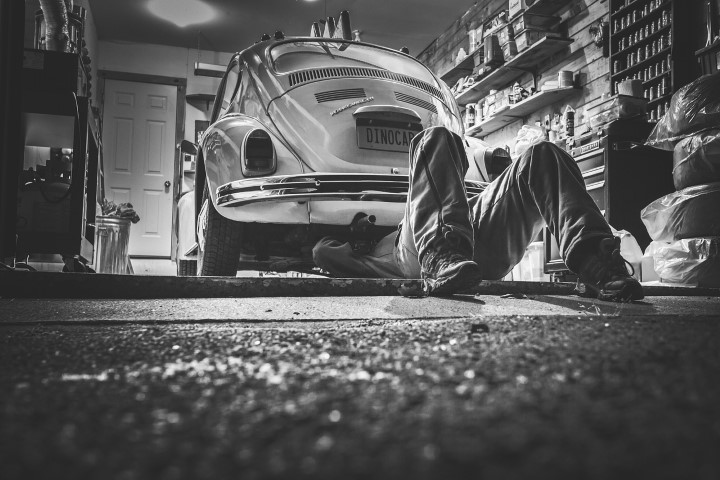
Maintaining your vehicle in top condition is crucial for ensuring its longevity and performance. Regular maintenance and addressing repairs promptly can prevent minor issues from escalating into major problems. In this guide, we’ll explore essential car repairs, including car Bodyshop repairs, to keep your vehicle running smoothly and safely.
1. Regular Oil Changes
Importance of Oil Changes
Oil is the lifeblood of your car’s engine. It lubricates moving parts, reduces friction, and helps regulate temperature. Over time, oil can break down and become less effective, leading to increased wear and tear on your engine. Regular oil changes are crucial to maintaining engine health and performance.
Recommended Frequency
Most manufacturers recommend changing your car’s oil every 3,000 to 5,000 miles, but this can vary based on the type of oil used and your driving conditions. Always refer to your vehicle’s owner manual for specific guidelines.
2. Car Bodyshop Repairs
Importance of Car Bodyshop Repairs
Car bodyshop repairs are essential for maintaining your vehicle’s appearance and structural integrity. Whether it’s minor scratches, dents, or more significant damage from an accident, addressing these issues promptly can prevent rust and further deterioration.
Common Car Bodyshop Repairs
- Dent removal: Techniques like paintless dent repair (PDR) can fix minor dents without affecting the paint.
- Scratch repair: Touch-up paint and polishing can fix minor scratches, while deeper scratches may require sanding and repainting.
- Panel replacement: Severely damaged panels may need to be replaced to restore the vehicle’s structural integrity.
Keeping your car’s body in good condition not only improves its appearance but also helps maintain its value.
3. Brake System Maintenance
Signs of Brake Issues
Your vehicle’s brake system is vital for safety. Regular maintenance ensures that your brakes are functioning correctly. Common signs of brake issues include:
- Squeaking or grinding noises: These can indicate worn brake pads or rotors.
- Vibration when braking: This may be caused by warped rotors.
- Soft or spongy brake pedal: This can suggest air in the brake lines or a fluid leak.
Essential Brake Repairs
Brake maintenance typically involves replacing brake pads, resurfacing or replacing rotors, and checking brake fluid levels. Addressing brake issues promptly can prevent more severe problems and ensure your safety on the road.
4. Tire Maintenance and Replacement
Importance of Tire Maintenance
Tires are the only part of your vehicle that makes contact with the road, making their condition critical for safety and performance. Proper tire maintenance includes regular rotation, balancing, and alignment.
Signs You Need New Tires
- Tread wear: Check the tread depth using a penny. If you can see the top of Lincoln’s head, it’s time to replace your tires.
- Cracks or bulges: These can indicate internal damage and risk of a blowout.
- Vibration or pulling: This may suggest alignment issues or uneven wear.
Regularly inspecting your tires and addressing issues can improve handling, fuel efficiency, and safety.
5. Battery Maintenance and Replacement
Signs of Battery Issues
Your car’s battery is essential for starting the engine and powering electrical systems. Common signs of battery issues include:
- Slow engine crank: This can indicate a weak battery.
- Dim lights: Weak battery or charging system issues can cause lights to dim.
- Warning light: Many vehicles have a dashboard light indicating battery or charging system problems.
Battery Maintenance Tips
Regularly check the battery terminals for corrosion and ensure they are clean and tight. Most batteries last 3-5 years, so consider replacement within this timeframe to avoid unexpected breakdowns.
6. Transmission Maintenance
Importance of Transmission Maintenance
The transmission is responsible for transferring power from the engine to the wheels. Regular maintenance ensures smooth gear shifts and prolongs the transmission’s life.
Signs of Transmission Issues
- Slipping gears: The car unexpectedly changes gears or loses power.
- Grinding or shaking: This can indicate worn components or fluid issues.
- Fluid leaks: Transmission fluid is usually red or brown. Leaks can cause significant damage.
Essential Transmission Repairs
Transmission maintenance includes checking fluid levels, replacing worn parts, and addressing leaks promptly. Regularly servicing your transmission can prevent costly repairs and extend its lifespan.
7. Cooling System Maintenance
Role of the Cooling System
The cooling system prevents your engine from overheating by circulating coolant through the engine and radiator. Regular maintenance is crucial to avoid engine damage.
Common Cooling System Issues
- Overheating: This can indicate low coolant levels, leaks, or a faulty thermostat.
- Coolant leaks: Check for puddles of coolant under the car.
- Radiator issues: Clogged or damaged radiators can reduce cooling efficiency.
Cooling System Repairs
Regularly check coolant levels and inspect hoses and the radiator for leaks or damage. Flushing the cooling system and replacing the coolant periodically helps maintain efficiency and prevent overheating.
8. Exhaust System Repairs
Signs of Exhaust Issues
The exhaust system reduces harmful emissions and directs exhaust gases away from the engine. Common signs of exhaust issues include:
- Loud noises: This can indicate a damaged muffler or exhaust pipe.
- Decreased fuel efficiency: Exhaust leaks can affect engine performance.
- Vibrations: Leaks or damaged components can cause vibrations.
Essential Exhaust Repairs
Regularly inspect the exhaust system for leaks, rust, and damage. Replacing damaged components ensures proper function and reduces harmful emissions.
Conclusion
Regular maintenance and timely repairs are essential to keeping your vehicle running smoothly and safely. From oil changes and brake maintenance to car bodyshop repairs and transmission care, addressing these essential repairs can prolong your car’s life and enhance its performance. Remember, when in doubt, always consult a professional mechanic or car bodyshop for expert advice and service. Keeping your vehicle in top condition not only ensures your safety on the road but also helps maintain its value over time.










